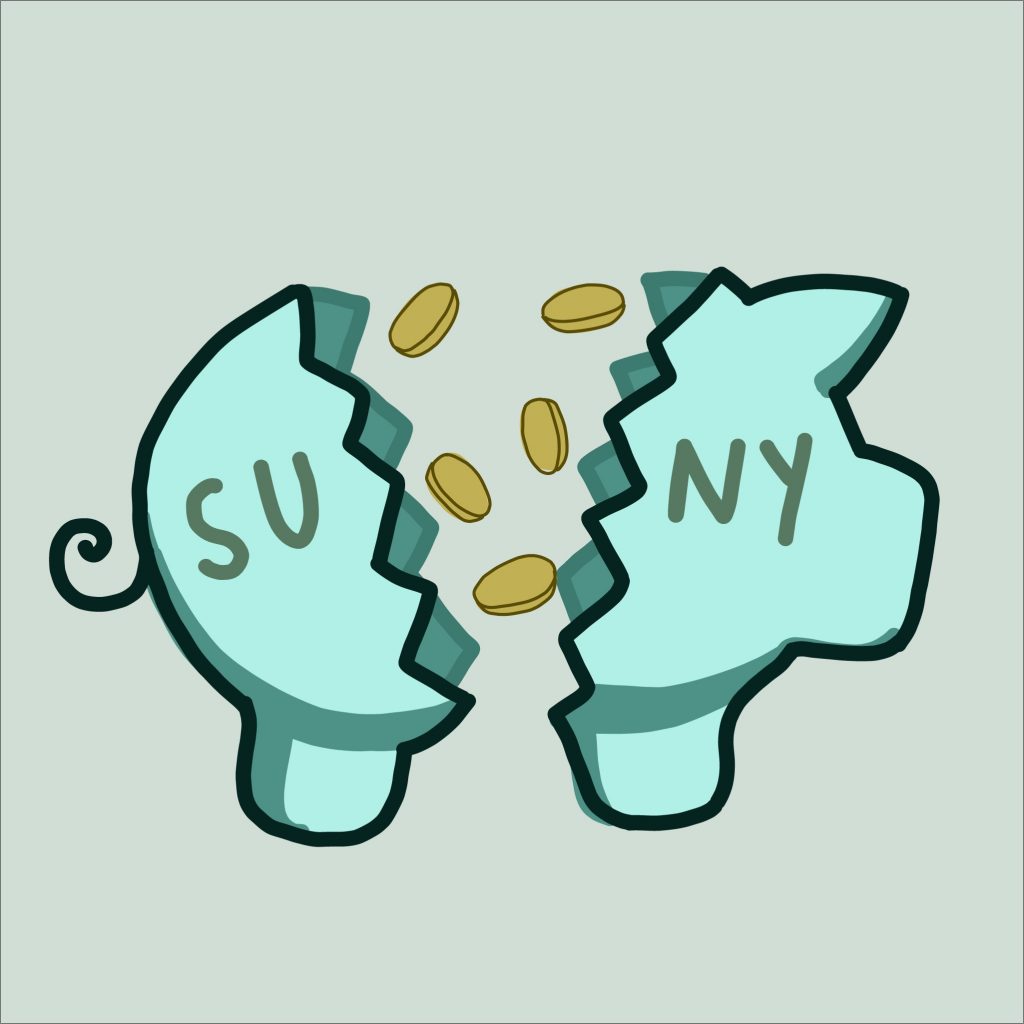The nation’s largest higher education union, United University Professions (UUP), launched a campaign earlier in October to advocate for more funding for SUNY. At Binghamton University, concern has been raised over whether a lack of state funding will force tuition increases, which could have drastic effects for current and prospective students.
This is not the first time the UUP has called for more SUNY funding — for the past decade, state funding to SUNY schools has remained stagnant, despite increased operational costs and needs. This past summer, New York State Gov. Kathy Hochul announced that SUNY tuition would be frozen and that $53 million would be provided to hire new faculty at SUNY schools, and $60 million provided for academic programs and student services — prioritizing those with the most student diversity. However, a vast number of SUNY schools, including SUNY Cobleskill and SUNY Albany, are still struggling with multi-million dollar deficits. This chronic underfunding has resulted in SUNY students paying $2 for every $1 of state funding.
SUNY financial difficulties have been exacerbated by declining enrollment rates caused by COVID-19. The state government is aware of the impact of the pandemic on higher education, and we call upon them to offer more funding to the SUNY system. According to the Democrat & Chronicle, SUNY enrollment decreased by 20 percent over the last decade and by 10 percent just since fall 2019, mostly due to COVID-19. The BU website’s “Financial Report” page states that the “2020-21 academic year was fiscally challenging” due to fewer on-campus residents and the allocation of several million dollars to COVID-19 testing. The university lost about $8 million in tuition revenue and $2 million in “associated student fees.” Last spring, BU projected that 2022-23 would see an $8-11 million deficit.
Amid the extra costs that SUNYs took on to enforce COVID-19-related health measures and the loss of student revenue, it is more important than ever that the government step up to fund our nation’s most accessible educational institutions. In addition to offering in-state students affordable tuition, investment in SUNYs has a great economic return. SUNY’s economic return is about $30 billion each year, and each dollar invested in SUNY generates $8.17. Additionally, most students continue to live and work in New York for at least two years.
If SUNYs are not able to get increased funding, they may be forced to cut academic and extracurricular programs, with SUNY Potsdam serving as a sobering example. SUNY Potsdam is currently facing a $3 million dollar deficit, and is launching an “academic realignment” campaign to compensate — jeopardizing the existence of 17 majors, eight minors, and two departments.
In addition to the value of the academic and extracurricular programs that BU already has, our school is in need of more — plans which will be jeopardized without an increase in funding. Students have repeatedly called for more investment in mental health resources, as BU only has 16 counselors employed for over 10 times the number of students. It is fair to assume that this lack of mental health resources extends to other schools, as the UUP’s campaign calls for 242 mental health counselors to be added across the SUNY system. BU is also hoping to renovate the Fine Arts building and revamp our arts program. Without more federal funding, SUNY facilities, academic programs and other student resources can be expected to remain stagnant or deteriorate.
SUNYs are the backbone of New York State, an integral part of developing its youth and economy. We applaud the UUP’s campaign to close the SUNY deficit, and hope that the state government will take steps to ensure the future of the SUNY system is secure.



